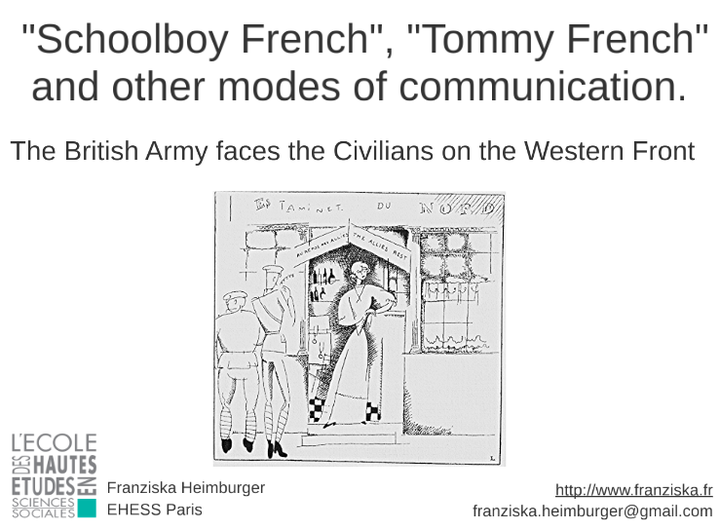'Schoolboy French', 'Tommy French' and other modes of communication – The British Army faces the Civilians on the Western Front

Abstract
The experience of living for over four years side-by-side with foreign but allied civilians has, for the British case on the Western Front, led to studies on agricultural functioning and on the transmission of sporting practices but to this day there has been no in-depth study of the linguistic and communicational implications. There is no lack of source material, be that phrase books and vocabulary aids for British soldiers, post-war compilations of war-time expressions, accounts by civilians, in particular those contained in the French postal censor records and those collected immediately after the war in the occupied regions or memoirs written by military interpreters who were often particularly attentive to linguistic phenomena around them. In this paper we will present a typology of these more or less rudimentary exchanges by compiling the kinds of expressions and analysing them, as an historian, but with the added input from translation studies and contact linguistics. The contemporaries spoke of « un espèce de sabir », a pidgin-like mode of communication, and we must therefor also bear in mind recent work on vehicular and intermediary languages in different cultural contexts. In particular, we will explore the hypothesis of a transfer of colonial experience and practice as far as the handling of languages with civilians is concerned. « Army English » already included a large number of expressions from the various colonial settings and then adapted and changed further with the experience of the Western Front and the massive expansion of the army and its social recruiting boundaries. To what extent were Northern French and Belgian civilans « white natives » as far as communication with them was concerned; is language a useful tool to investigate similarities and differences between colonisation and allied occupation ?